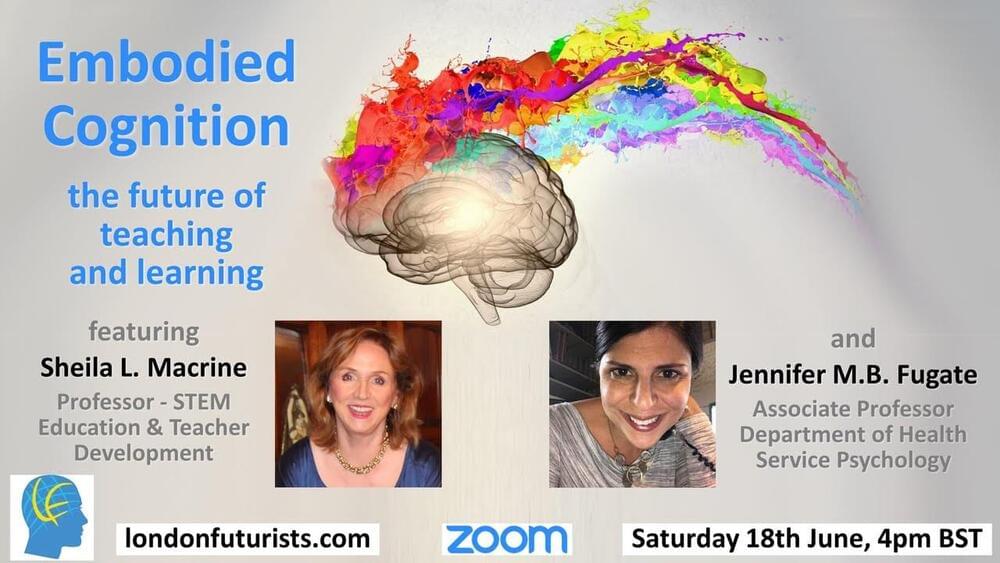Understanding the mind and how thinking occurs has been a challenge for philosophers, scientists, theorists, educators, and artists throughout history. Until recently, ideas about how we learn have been mainly theoretical and intuitive. However, with ongoing advances in neuroscience, considerable progress is occurring. As a result, a paradigm shift is taking hold in human cognition, pointing to a new science-based understanding about the way we think and, ultimately, the way we learn.
This paradigm shift — a move away from traditional notions of the mind to an “embodied cognition” model of human thinking and learning — is the subject of a new book “Movement Matters: How Embodied Cognition Informs Teaching and Learning”. The book is summarised as follows:
“Experts translate the latest findings on embodied cognition from neuroscience, psychology, and cognitive science to inform teaching and learning pedagogy.”
This London Futurists webinar featured the co-editors of this book, Sheila Macrine, Professor of STEM Education & Teacher Development at the University of Massachusetts, Dartmouth, and Jennifer Fugate, Associate Professor in the Department of Health Service Psychology, at Kansas City University.
In the webinar, professors Macrine and Fugate highlighted key implications of this improved understanding for the future of teaching and learning, and answered audience questions.
The webinar was recorded on Saturday 18th June 2022. It was introduced and moderated by David Wood, Chair of London Futurists.
